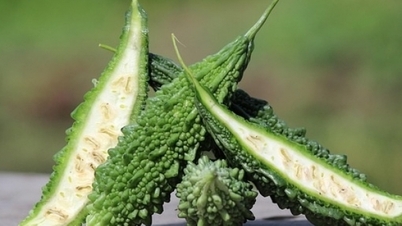 |
| Control the water temperature to preserve the health benefits of coffee. (Source: Adobe Stock) |
Coffee is not only a refreshing drink but also one of the richest sources of antioxidants in the daily diet.
According to Healthline , the antioxidants in coffee, especially polyphenols, have the ability to protect cells from damage caused by free radicals, thereby reducing the risk of cardiovascular disease, type 2 diabetes and neurodegenerative diseases such as Alzheimer's.
Some studies also show that coffee can help prolong life thanks to its ability to protect the liver and reduce inflammation in the body.
However, according to nutritionists and coffee brewing experts, just a few small mistakes in the brewing process can significantly reduce these benefits.
Water temperature, coffee bean quality and sugar adding habits are three factors that directly affect the nutritional value and flavor of coffee.
Water temperature - the most overlooked factor
The most common mistake is using boiling or very hot water. According to the American Coffee Association, the water used to brew coffee should be between 90 and 96 degrees Celsius. When this threshold is exceeded, the antioxidants in coffee, especially polyphenols, are easily destroyed. As a result, not only does it lose much of its nutritional value, but it also makes the coffee more bitter and sour.
On the other hand, if the water is too cold, the aromatic compounds and antioxidants will not be extracted sufficiently, resulting in a bland and unappealing cup of coffee. Therefore, controlling the water temperature is the most important factor to preserve the full health benefits of coffee.
Coffee bean quality
Not all coffees are created equal. Coffees that are sourced responsibly and roasted for the right amount of time contain significantly higher levels of antioxidants than beans that have been aged or over-processed.
According to the Journal of Agricultural and Food Chemistry , medium-roasted coffee has higher concentrations of polyphenols than dark-roasted coffee, as the high temperatures during long roasting can destroy these protective compounds. Additionally, poor-quality beans or beans mixed with defective beans not only reduce nutritional value but can also contain harmful impurities.
Limit sugar to increase antioxidant effects
Adding sugar or syrup to coffee is a common practice, but it can negate many of the benefits of this beverage. Refined sugar can promote inflammation and reduce the activity of natural antioxidants.
If you find coffee too bitter, experts recommend replacing it with a little cinnamon or unsweetened nut milk to enhance the flavor while still retaining nutritional value.
Source: https://baoquocte.vn/mot-so-sai-sot-nho-trong-qua-trinh-pha-ca-phe-co-the-lam-giam-tac-dung-keo-dai-tuoi-tho-bao-ve-gan-332376.html






![[Photo] Panorama of the Patriotic Emulation Congress of Nhan Dan Newspaper for the period 2025-2030](https://vphoto.vietnam.vn/thumb/1200x675/vietnam/resource/IMAGE/2025/11/04/1762252775462_ndo_br_dhthiduayeuncbaond-6125-jpg.webp)
![[Photo] Opening of the 14th Conference of the 13th Party Central Committee](https://vphoto.vietnam.vn/thumb/1200x675/vietnam/resource/IMAGE/2025/11/05/1762310995216_a5-bnd-5742-5255-jpg.webp)




































































































Comment (0)